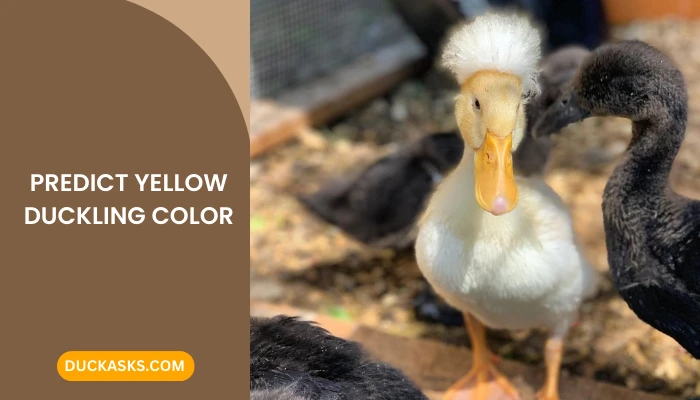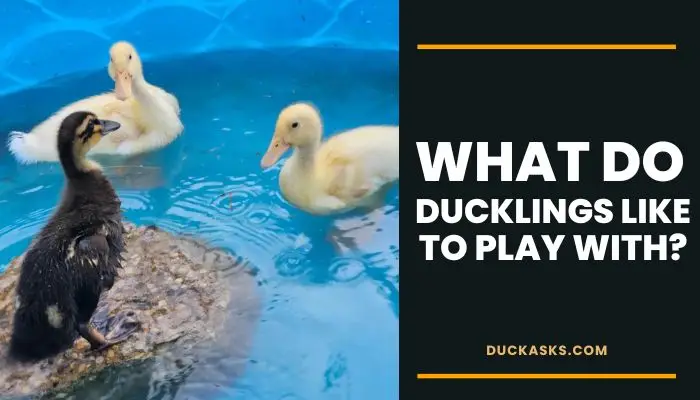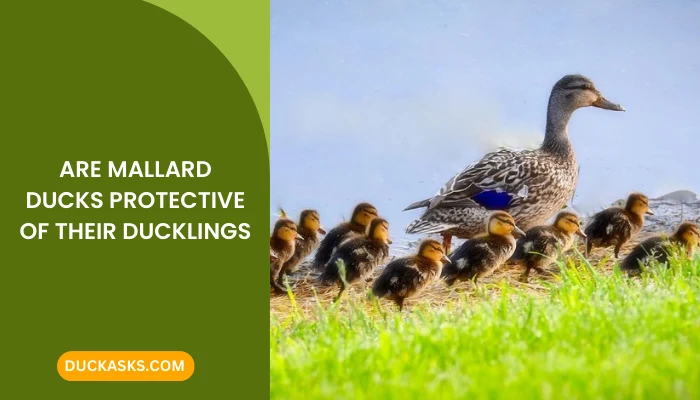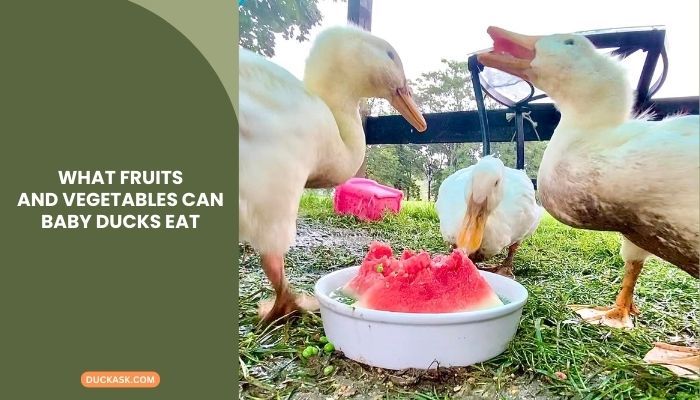Are Baby Ducks Easy to Take Care of?
I was 11 years old when I bought a duckling into our house. And all I needed to do is to feed the baby duck on the right time and make sure there’s no predator nearby.
But typically, ducks are messy waterfowls, which might make people worry whether are baby ducks easy to take care of or not. Compared to an adult duck, ducklings are much easier to take care. Even a 10 years old boy can do it without any issue. As long as the basic arrangements are good and you can feed them on time, baby ducks won’t bother you much.
But, to make sure they are healthy and disease-free, you must have proper knowledge about what to do, and what not to do. And this is why this article is for.
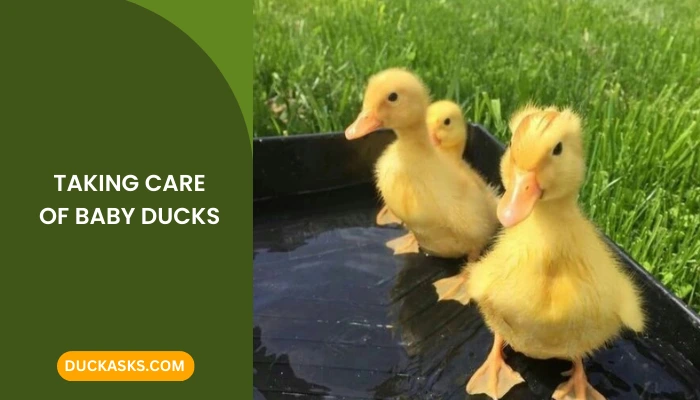
Looking for more articles about ducklings:
Are Baby Ducks High Maintenance?
Adult ducks are very high maintenance, but baby ducks are not. Ducks require a lot of clean water daily.
But adult ducks tend to pollute the water with dirt and soil while drinking them. So, you’ll need to change it quite frequently. They are also very messy creatures which means frequent cleanup is required.
Contrarily, caring for duckling only require basic arrangements and chores done properly. You can provide them with a safe environment only using an old cardboard box or a simple plastic container.

Feeding them is simple too as giving them slightly modified chick feed will work just fine. Besides these, just give them a lot of water and interact with them regularly.
What Are the Basic Requirements for Taking Care of Baby Ducks?
Raising ducklings may not be a demanding job, but there are some basic needs and setups you must provide for your growing baby ducks. Let’s take a look.
Brooder Setup
You’ll need a warm and safe brooder (a small enclosure) for housing your ducklings.
This can be a bathtub you’re not using, a cardboard box, a dog crate, or a plastic container lined with bedding material like straw or wood shavings.
Temperature Control
In the brooder, the ducklings need the right temperature setup to grow healthy. Heat sources like a light bulb or a specialized brooder lamp can provide the necessary warmth.
For the first week, maintain a temperature of 90 to 95°F (32-35°C). Gradually decrease the temperature by about 5°F (2.8°C) per week for the first three weeks.
After that, you won’t need additional heating if the climate temperature is above 70°F. If not, maintain the temperature until they’re feathered. [1]
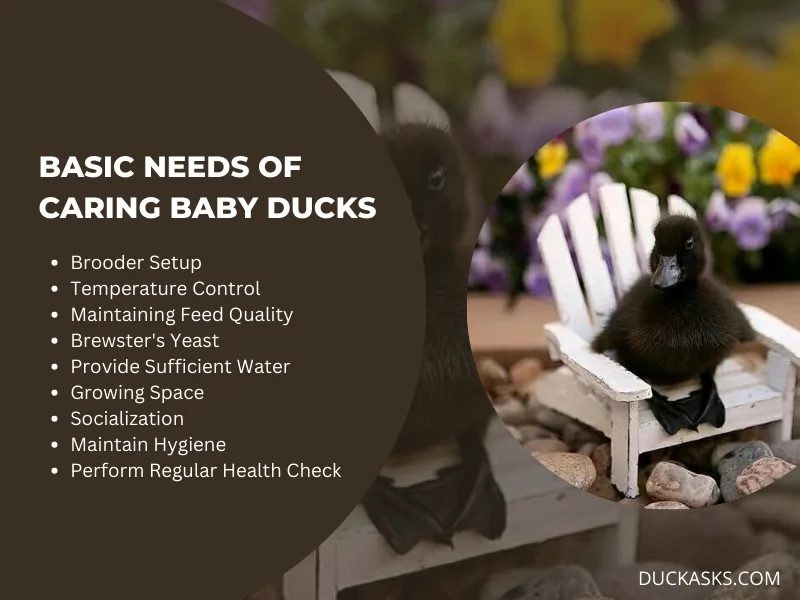
Maintaining Feed Quality
Baby ducks don’t have a demanding diet need, but certain points must be noted. You can safely feed your ducklings regular chick feed as long as it isn’t medicated.
Medicated feeds can kill your ducklings as they consume a lot more food on average compared to chicks.
Also, control the protein contents in your duck’s feed. In the first week, maintain 20-22% protein content and tone it down to 16 to 18% after the fast week.
Brewster’s Yeast
Ducklings require more niacin, a particular vitamin B type that can’t be met with regular chicken feed. Adding a tablespoon of Brewster’s yeast to each cup of regular feed is an easy and cheap solution.
Provide Sufficient Water
Ducks drink a lot of water compared to chickens. They also need to be able to drown their bill completely in the water to keep their nostrils tidy. So, you’ll need a proper setup, like a bowl of appropriate height or a duck fountain in the brooder.
Growing Space
Ducklings will eventually outgrow the brooder and need more space. Plan for a suitable outdoor enclosure with access to water for swimming and foraging.
Socialization
Ducklings are social animals and thrive best when they have companions. If you’re raising only one or two, they may become stressed. It’s usually better to raise more than three ducklings to prevent loneliness.
Maintain Hygiene
As mentioned earlier, ducks are messy creatures, so maintaining cleanliness in the brooder is crucial for preventing diseases. Clean the brooder regularly to prevent the buildup of waste and keep the environment inside warm and dry.
Perform Regular Health Check
As I mentioned earlier, ducks are hardy beings that don’t fall sick often. But regular check-up on them and their surroundings is key for preventing them from falling sick.
Keep the brooder clean and warm. Make sure the water you provide them with is clean too. Dirty environment and water are great sources of duck diseases.
Use a thermometer to check their temperature on a regular basis, as temperature is a great way to determine if a duckling is sick or not.
How Much Time and Effort Is Needed to Properly Care for Baby Ducks?
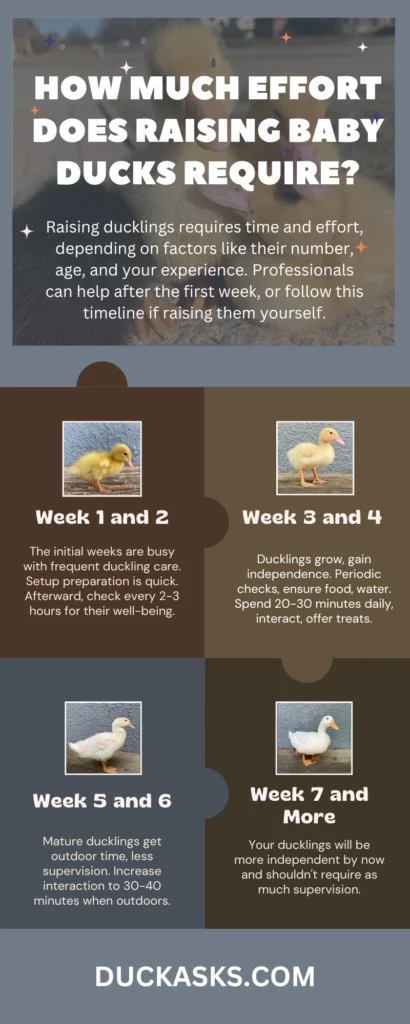
The amount of time and effort you’ll need to invest in raising ducklings will vary depending on a number of factors.
The number of ducklings you’re raising, their age, your level of experience, and the resources you have available are some of the most crucial ones.
One thing you can do is let professionals handle their growth after the first week. This will make your job way easier.
If you choose to do it yourself, here’s a general timeline for raising baby ducks –
Week 1 and 2
The first few weeks will be more hectic as the ducklings will require frequent attention during this period. You won’t need much time to build the living setup for the ducklings.
And after the setup is ready, place your ducklings there. Check on them every 2-3 hours to ensure that they are warm, comfortable, and have access to enough food and water.
Week 3 and 4
Your ducklings will be grown a little and can be slightly more independent from now. Still, check on them every once in a while, and make sure they have a sufficient amount of food and water.
Also, spend around 20-30 minutes interacting with them daily, offering treats like small pieces of greens or insects.
Week 5 and 6
Your duckling will be more mature by now. This is when you give them supervised access to the outdoors.
You won’t need to check up on them as frequently, but it’s better to increase your interaction time to 30 to 40 minutes. This is especially while they’re outdoors.
Week 7 and More
Your ducklings will be more independent by now and shouldn’t require as much supervision.
Potential Challenges in Raising Baby Ducks
Raising baby ducks comes with several potential challenges that you should be aware of. Let’s take a look at them below –
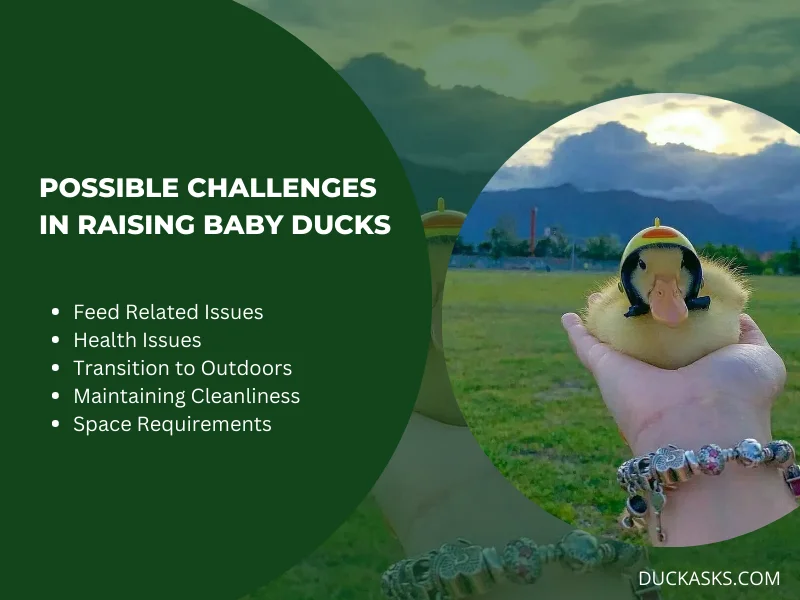
Feed Related Issues
Maintaining duck diet regulations is key for keeping your ducklings healthy, and specialized duck feed is not always available in the market.
In that case, you’ll need to turn starter chick feed into appropriate duck feed. This requires a good amount of knowledge and practice.
Health Issues
Ducklings can be susceptible to various illnesses, like bronchitis, bumblefoot, cholera, etc. There can also be an infestation of parasites. Recognizing the signs of illness and seeking appropriate treatment can be challenging.
Transition to Outdoors
Introducing ducklings to an outdoor environment requires careful monitoring and familiarization. This requires both patience and time of a good amount.
Maintaining Cleanliness
Ducklings can be messy eaters, drinkers, and poopers. Keeping their living space clean and dry requires regular maintenance.
Space Requirements
Grown-up ducks need a good amount of space for roaming, foraging, and swimming. If you have a limited outdoor area, raising ducks can be a challenge for you.
Conclusion
So, are baby ducks easy to take care of? Although, yes, raising baby ducks is easier compared to some other common poultries and livestock, it comes with its own challenges. And also, remember that it’s a long commitment that requires patience and dedication.
It’s a rewarding effort as well; I mean, just look at those cute things. They’ll also provide you with nutritious eggs and meats. So, don’t hesitate to dive right in.
References:
- JAHP_5_2_39-43.pdf (nexusacademicpublishers.com)
Image credit:
- https://www.instagram.com/beauty.of.duck/
- https://www.instagram.com/duck.world_/
- https://www.youtube.com/@wrinkletheduck

